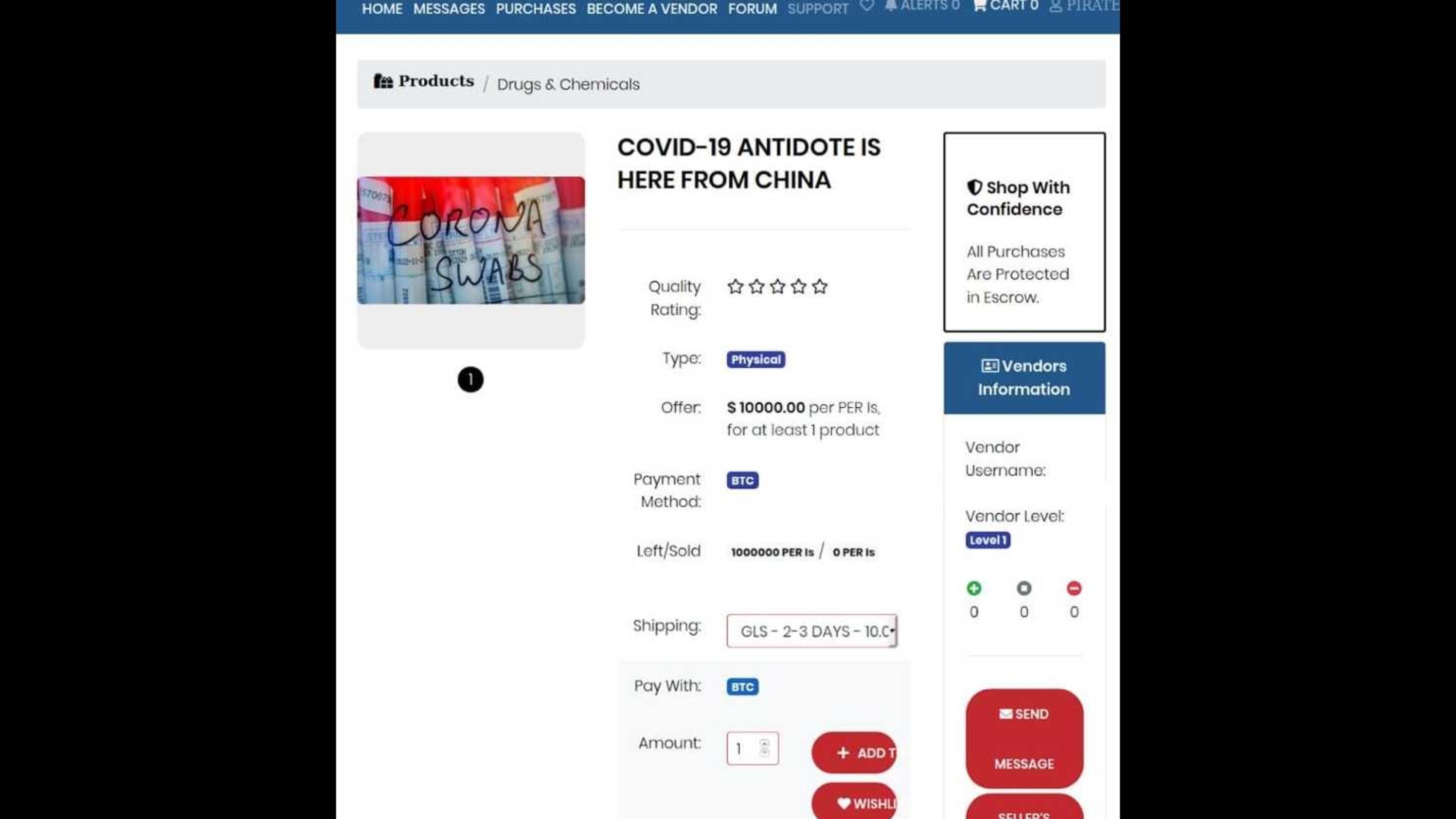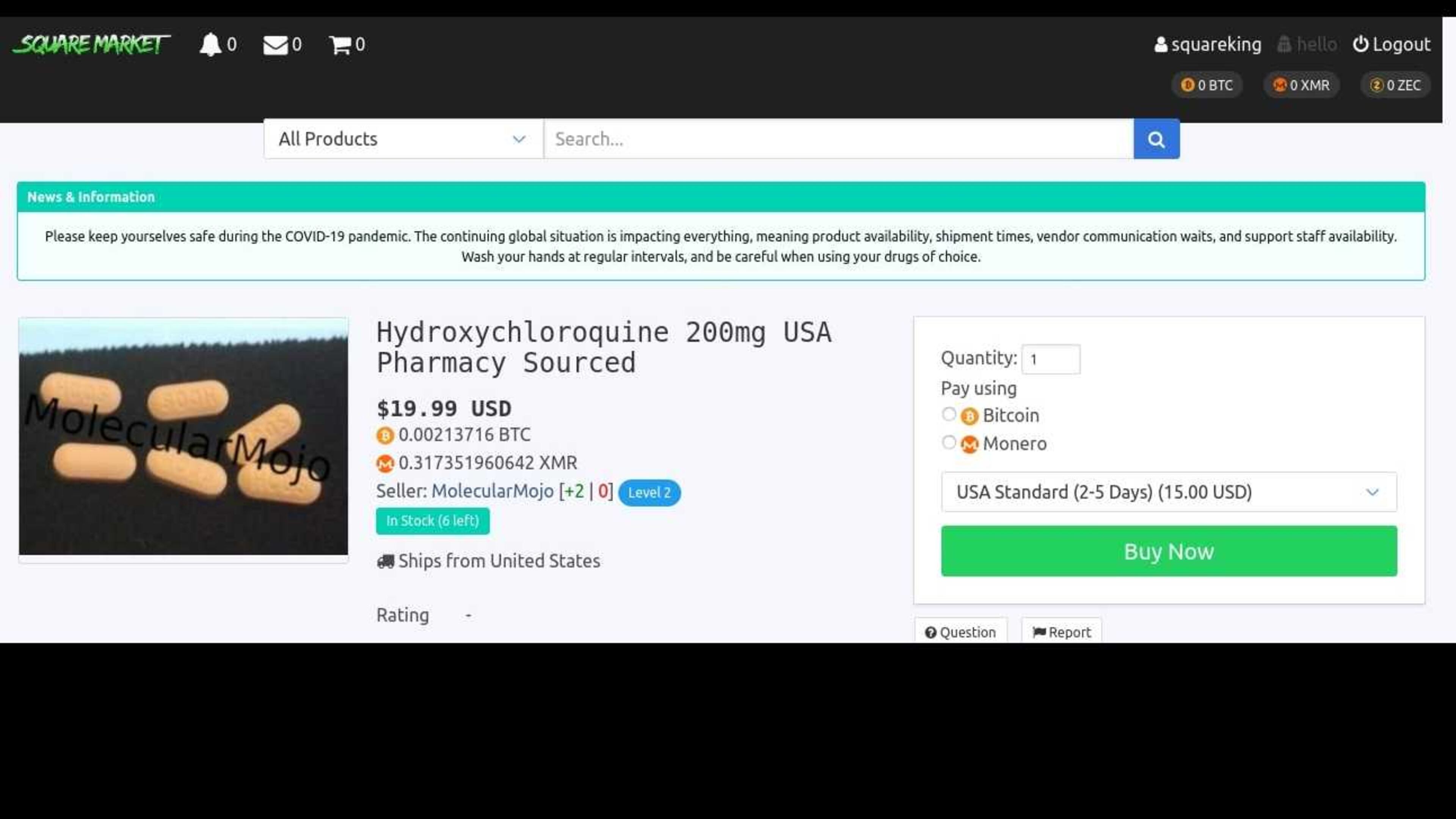Federal agencies, Georgia State crack down on COVID-19 scams

As COVID-19 sent the country into lockdown mode, toilet paper wasn’t the only item coveted by anxious Americans. Vying for the top spot on Amazon’s bestseller list in the health and household category was elderberry gummies with vitamin C and zinc.
Elderberry has been marketed as an immune-boosting supplement that may help prevent cold and flu symptoms, but there was no data to suggest that it could fight COVID-19. In the months that followed, Georgians would reach for everything from poisonous disinfecting agents and toxic pesticides to vitamin supplements in misguided attempts to combat the virus.
The threat of illness or death hasn’t stopped the proliferation of services or products being pushed as cures or prevention for COVID-19. Since March, more than a half dozen Georgia-based companies have been warned by the Food and Drug Administration or Federal Trade Commission to stop making false claims about products related to the virus.
From April through late July, more than 900 fraudulent items from around the country, including fake test kits, cures and counterfeit PPE, along with proceeds of more than $7 million, were seized by federal agencies, according to data from the U.S. Immigration and Customs Enforcement’s Homeland Security Investigations Operation Stolen Promise, an effort to protect citizens from COVID-19-related criminal activity and fraud. Georgia State University recently received funding to help track similar sales of fraudulent items on the dark web.
“Although there are no approved treatments for COVID-19, that isn’t stopping fraudsters from illegally trying to sell these products and other counterfeit or prohibited medical supplies and testing kits to U.S. consumers,” said Homeland Security Investigations Acting Executive Associate Director Alysa Erichs in a statement. “We are encouraging everyone to be extra cautious especially when going online, and know the red flags, to prevent being a victim of fraud.”
Earlier this week, Gov. Brian Kemp’s office said the state Department of Public Health had received reports of Georgians drinking diluted chlorine dioxide — which is commonly used to treat drinking water — marketed as Miracle Mineral Solution among other names. The notice came just a few days after President Donald Trump confirmed consideration of the extract from the poisonous oleander plant as a cure for COVID-19, and one day after medical experts expressed concerns about Trump granting emergency use status to plasma therapy, which has not yet gone through clinical trials.
“The reason why people don’t die all the time from new drugs and new ideas is because we have a process in place that tests efficacy and tests safety and allows for the time to know that what we are prescribing to patients does not do more harm than good,” said Benjamin Corb, spokesman for the American Society for Biochemistry and Molecular Biology, an 114-year-old organization of 10,000 researchers who study viruses. “A lot of people want stuff now. There is a desire to say, let’s just try it, what is the worst that can happen? The worst that can happen is that someone can die.”

In an effort to help identify alternate sources of illicit products, a team of Georgia State University researchers earlier this year received a $60,000 National Science Foundation grant to study threats related to the sale of critical COVID-19 supplies on the dark web.
The team has seen sites claiming to have vaccines, antidotes for sale from China, and remdesivir, a drug being used in COVID-19 trial research. At the start of the pandemic, the team found surgical masks in greater supply on dBay, the dark web version of the consumer site eBay, than by many retailers.
“Not everything is real, but some of the vendors are selling real commodities,” said Georgia State associate professor David Maimon, director of the university’s Evidence-Based Cybersecurity Research Group.
The goal is to assess the sheer size of COVID scams and items for sale and educate the public by posting some information on its website. Findings are also shared monthly with law enforcement officials.
Not all scams involve medications or PPE. The most disturbing recent discovery has been scammers selling Social Security numbers for people to apply for unemployment benefits or small-business relief funds. One person helped others steal about $1 million in taxpayer funds, the researchers said.
“It’s unbelievable how the bad guys are taking advantage of the government, and of the victims,” said Maimon, a criminologist. The team is expected to submit a report to federal officials by the end of the year.
Several Georgia-based businesses have been warned by federal agencies for making claims that chiropractic services, herbal treatments and vitamins can boost the immune system and ward off COVID-19. The Atlanta Journal-Constitution contacted eight local businesses that received warning letters from federal agencies, but only one responded to requests for comment.
Shawn Hodges, a pharmacist and owner of Innovation Compounding in Kennesaw, said the company took action after receiving a letter from the FTC on May 22.
Marketing materials on its website cited a clinical trial in China involving high-dose vitamin C as a COVID treatment. The company offers high-dose vitamin C that can only be administered intravenously and acquired by medical professionals, some of whom have already used the treatment on COVID-19 patients.
“We went to our website to make sure there wasn’t anything there about the treatment of COVID related to vitamin C,” Hodges said. The FTC, he said, “has been telling pharmacies in general to make sure that whatever data or claims you are posting need to be substantiated by studies.”
Though clinical studies are underway at the McGuire VA Medical Center in Richmond, Virginia, and in Wuhan, China, to evaluate vitamin C infusion as a treatment for COVID-19-related pneumonia, they have not yet been completed. There are also clinical trials underway for the use of vitamin d, quercetin and other supplements in the treatment of COVID-19, but no data has been reported.
Other Georgia companies warned by federal agencies include Dr. David Dahlman of Hyde Park Holistic Center in Decatur, who posted marketing materials about “Chloroquine and Natural Solutions for Coronavirus.” Chloroquine, a drug approved by the FDA for the treatment of malaria but not COVID-19, is a version of the drug Trump said he was taking to prevent the virus.
Fuller Life Chiropractic in Peachtree City promoted its services to people concerned about COVID-19 by linking chiropractic effects on the nervous system to immune system functioning. Roswell-based Meta-Labs Inc., on a webpage labeled “COVID 19-Defense Product,” touted curcumin as an antiviral that can prevent virus infection. On its website, Fusion Health in Alpharetta offered a product called “Immune shot,” described as a sublingual vitamin D3 designed to boost immunity to infectious diseases. All were warned by federal authorities.
In March, the Environmental Protection Agency banned a chemical-filled lanyard that claimed to prevent the wearer from getting COVID-19. Rong Sun of Fayetteville pled guilty to selling the “Virus Shut Out” necklaces, which are filled with the same chlorine dioxide recently reported by state health officials. Sun was sentenced to two years of probation and a $659 fine, according to the U.S. Attorney’s Office, but the lanyards are still widely available online from a range of sources.
It is common for fraudulent medical products to emerge during a pandemic. It happened in 2013 when the FDA issued warning letters to firms selling unproven medical products to prevent influenza and again in 2014 for fraudulent Ebola products. Thousands of internet domain names were registered in 2020 that the FDA considered “high risk,” and as of June, more than 90 warning letters were issued. The agency has continued to remind consumers that there is no approved cure for COVID-19.
BY THE NUMBERS
In April, the U.S. Immigration and Customs Enforcement’s Homeland Security Investigations launched Operation Stolen Promise to track and prevent COVID-19-related fraud and criminal activity. From April to July 28:
911 total seizures were made, including medications, treatments and counterfeit PPE
$7,025,343 in proceeds was seized, including more than $2.2 million in CARES Act fraud
50,848 domains were analyzed
570 cases were initiated, including illegal importation, financial and cyber




